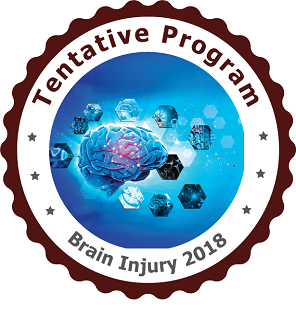
Raed Mohammad Odeh Aljubour,
King Hussien Medical Center, Jordan Lunch Break 12:4
Title: Management of severe head injury and rule of intracranial pressure monitoring to decrease the morbidity and mortality
Biography
Biography: Raed Mohammad Odeh Aljubour,
Abstract
Objective: Severe brain injury is defined as a brain injury resulting in a loss of consciousness of greater than 6 hours and a Glasgow Coma Scale of 3 to 8. Patients in this condition need endotracheal intubation and mechanical ventilation, the main cause of secondary brain injury is increase in intracranial pressure which is preventable when it is detected and can decrease mortality and morbidity rate.
Method: This study focused in management of severe head injury and of intracranial pressure monitoring to decrease the morbidity and mortality, multi-centric study compares the outcome between patients with same GCS in hospital with intracranial pressure monitor versus patients in hospital without intracranial pressure monitor.
Results: We took 2 groups with same GCS, first group patients in hospital with intracranial pressure monitor and second group patients in hospitals without intracranial pressure monitor. Compare the mortality rate in both groups, with same GCS which shows less mortality and morbidity rate is more significant in GCS 7 and 8.
Conclusion: Hospital with intracranial pressure monitor especially intra-ventricular had less mortality and morbidity rates in patients with severe head injury with GCS 7 and 8, no difference in GCS below 6.

